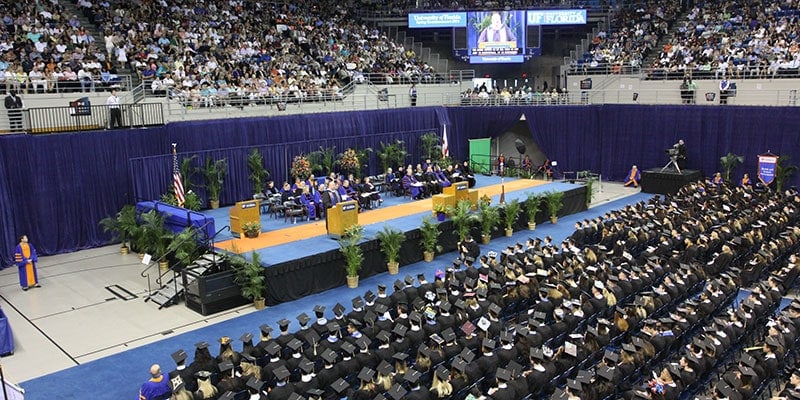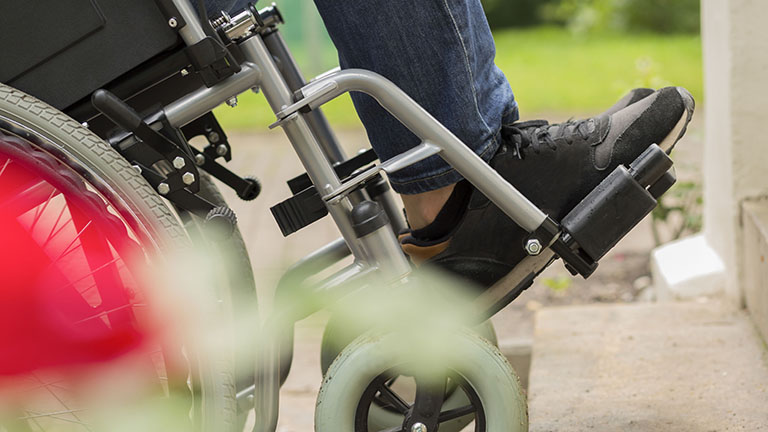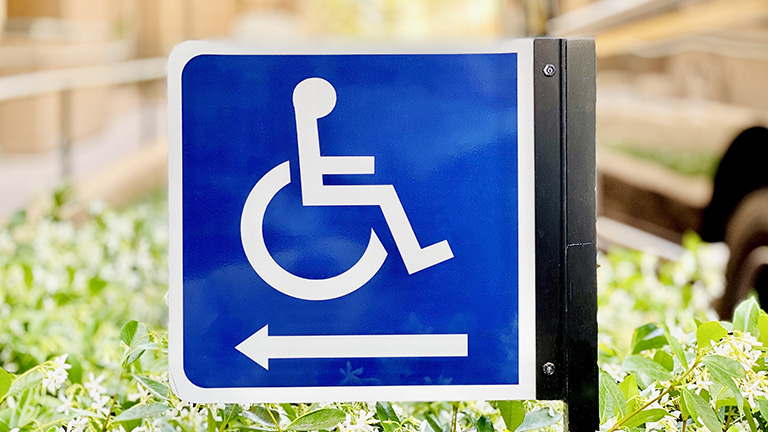Most students (and administrators) usually have some anxiety surrounding an upcoming graduation ceremony. Being on a stage is nerve-racking. Now, imagine what it’d be like if you have difficulty even getting onto the stage in the first place?
Equal Opportunity
Part of what makes your high school or university great is the equal opportunity it gives to all students. Whether the student is in a wheelchair or suffers from another limitation, anyone can get onto the stage or anywhere else they’re going. “To feel a part of the celebration or program, everyone needs to access to the stage,” says Lynda Reinhart, Director of the Stephen C. O’Connell Center at the University of Florida in Gainesville, FL. “At graduation; for instance, everyone needs the opportunity to cross the stage and shake hands with their University president or high school principal, regardless of disability.”
Be Prepared
You already know about the Americans with Disabilities Act (ADA). It mandates that anyone be able to get onstage as desired, even if it’s only a portable stage and, what’s more, it is also a wheelchair user’s right. “Without our portable wheelchair lifts, we wouldn’t be able to meet ADA requirements,” says Reinhart.
Students in wheelchairs can legally demand to get onstage under their own power. Parents can demand it for their kids in wheelchairs. The statute applies equally to children, adults, parents, teachers, grandparents, guest speakers, performers… anyone in a wheelchair.
For Trinecia Blacklock, a 5th grader at Houston’s Link Elementary School, her moment was completely overlooked at her own graduation. “I wish I would have gone across the stage, but they have no ramp, nothing but stairs,” said Blacklock. Not only was this a heart-breaking experience for the 10-year-old, but it was an embarrassment to the school and the school district after making national headlines.
What are your options?
Ramps might work, if you have enough floor space. They need to be one foot long for every one inch of stage height. That means if you have a 30-inch-high stage you need a 30-foot-long ramp.
If you can’t spare the real estate needed to accommodate a ramp, a wheelchair lift would be perfect.
You will want to consider where and how the lift will be used. If it will be in front of a stage, you probably want a unit that won’t block audience lines of sight or interrupt the ceremony. To meet these criteria, the bare essentials for a lift that will be used in front a stage are that the lift is:
- “Tower-less”,
- Quiet, and
- Fitted with clear windows.
On the other hand, if your lift will be used behind the stage, then appearance, sound, and lines of sight may be less important to you. However, if you have steps from the audience to the stage, keep in mind that “equal access” may mean that you must provide access for wheelchair users so they can get onto the stage from the audience side just like everyone else.
Think “Flexibility”
Stage areas in most schools need to adapt to a variety of performances and uses. Whether in an elementary school “cafetorium,” middle school gymnasium, high school performing arts center, or university stadium with portable staging, a flexible space is a user-friendly space.
Thus, Reinhart and the University’s selection committee turned to the portable wheelchair lifts offered by Ascension. “Because the stage is the center of attention at graduation ceremonies and other events, the aesthetic of the portable wheelchair lifts were important to us,” says Reinhart. “Our old wheelchair lifts had towers that partly obscured the audience’s view of the stage. They drew unwanted attention with an out-of-place industrial look. We wanted better.”
In Conclusion…
Consider your needs, do some research, and you will earn the respect of colleagues, parents, and students alike. With great preparation, you can make sure that all of your students are able to cross your stage with dignity.
Attention All California Schools & Public Entities
Ascension has an exclusive contract with the Los Angeles Unified School District (LAUSD) and any school district or public entity in California can purchase a portable wheelchair lift without having to go through the bid process.
For more information, read “Wheelchair Lifts for California Schools” or contact Ascension.



